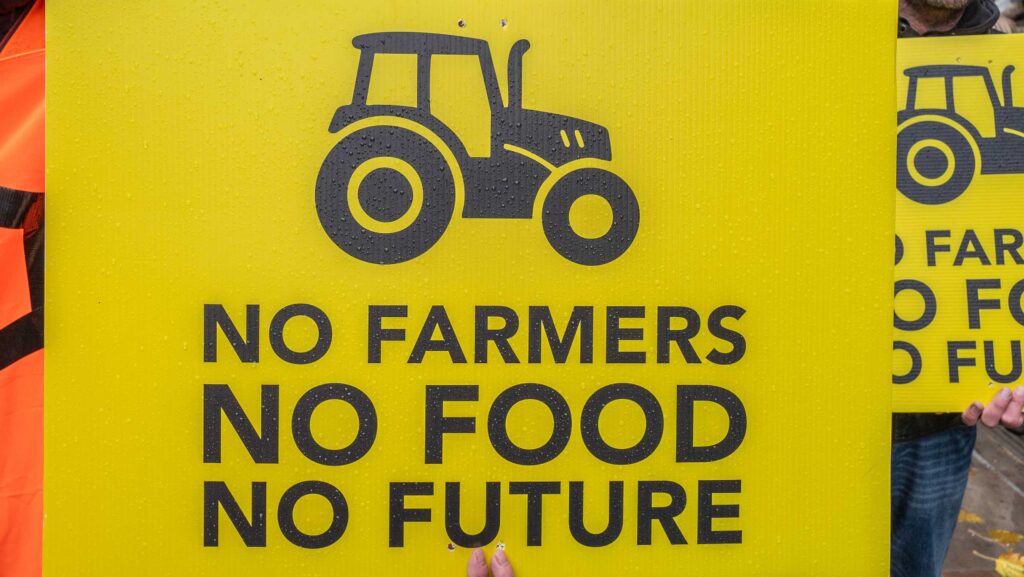Labour’s farm inheritance tax ‘secrecy’ sparks anger
 © Phil Weedon
© Phil Weedon The Labour government is under fire for refusing to release the economic analysis behind its decision to reject an industry-backed alternative to controversial changes to farm inheritance tax – prompting accusations of secrecy and a lack of accountability from rural leaders.
Ministers claim a “clawback” scheme proposed by the Country Land and Business Association (CLA), NFU and other farming bodies would raise “much less” revenue than the current plans.
These will impose a 20% inheritance tax on agricultural and business assets worth over £1m from April 2026.
But the Treasury has refused to provide any data or workings to support this claim.
See also: NFU’s ‘clawback’ IHT proposal to Treasury could raise £686m
In response to a Freedom of Information request submitted by the CLA, the Treasury said releasing the figures would not be “in the public interest”, arguing that it could hinder the ongoing development of the policy.
This is despite ministers repeatedly stating that the policy is final and not subject to change.
CLA president Victoria Vyvyan strongly criticised the refusal, saying: “The Treasury says it is not in the public interest to explain itself. We disagree.
“There has been no consultation, no impact assessment published and now no details given to support their claim.
“The businesses affected deserve an accountable and transparent Treasury, and this policy has been tainted from the start with being autocratic and opaque.”
‘Clawback’ system explained
The proposed clawback system, put forward in February after chancellor Rachel Reeves invited alternative ways to raise revenue, would retain 100% relief for farms and businesses at the point of inheritance, but impose a 40% tax on assets sold within a set time period post-death, payable out of the proceeds of the sale.
Supporters argue it is fairer, targets land speculators, and avoids penalising those who continue farming.
Independent economic modelling by CBI Economics suggests the government’s preferred plan could actually harm the economy, costing over 125,000 jobs, reducing growth by £9.4bn and resulting in a net fiscal loss of £1.25bn.
A coalition of more than a dozen industry groups, including the NFU, Family Business UK, and the British Holiday & Home Parks Association, has written to chancellor Reeves urging her to publish the Treasury’s evidence.
“What are they [the government] hiding?” asked Steven Mullholland, chief executive of the Construction Plant-hire Association. “It is disappointing in the extreme that they refuse to publish their analysis of the impact this policy will have.”
Jason Lindsay, President of Historic Houses, warned: “The ending of full relief is a fatal blow to some of the UK’s most important tourism and hospitality destinations.”
Last week, the influential cross-party Environment, Food and Rural Affairs (Efra) committee, made up of seven Labour MPs and four Lib Dem and Tory MPs, called on the government to delay implementation of its farm IHT by a year, warning the reforms were announced without proper analysis and risk harming vulnerable farms.
Protests erupted last year after the chancellor announced plans in the autumn Budget to tax inherited farm businesses from next April, in an effort to raise £500m a year by 2029. Farmers warn the tax bills would make their businesses unviable and wipe out their profits for a decade.
Government intransigence
For its part, the UK government continues to state that the policy will affect only about 500 farms a year, equivalent to about 16,000 over a generation.
A UK government spokesman said: “The vast majority of estates claiming these reliefs will still pay no additional inheritance tax, and those that do will pay a reduced rate and be able to pay over ten years interest-free.
“This is a fair and balanced approach to help fix the public services we all rely on.”
